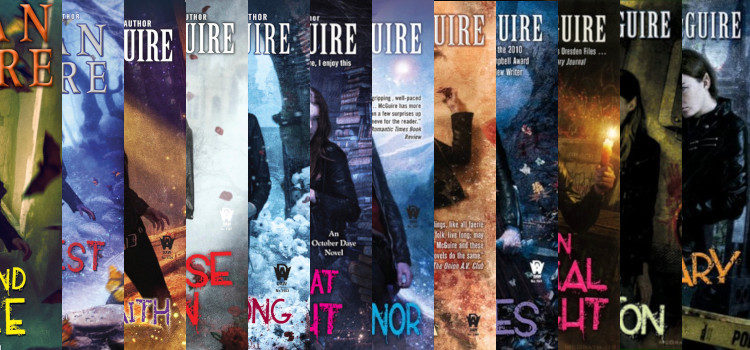October Daye is an urban fantasy series starring a PI who bridges the gap between fairy and humans. On its face, there is nothing to distinguish it from any of the other long running series like Dresden/The Hollows (PI), True Blood/Mary Gentry (fairies), etc, except it is a perennial best series nominee for the Hugos. Indeed, I’ve read and briefly reviewed the October Daye series not once, but twice before, putting them in the middle of my Hugo Series ballot in both 2017 and 2019. After the last round I praised them as “weapons grade escapism”, but given I enjoyed them enough this year to reread the series, they deserve a bit more than that. In particular, it misses what is the key strength of the series – a family of characters that I want to hang out with each instalment, the lexical equivalent of a great sitcom or procedural.
Tag: Awards

Hugo Awards Extravaganza 2019 – Best Dramatic Presentation, Short Form
Obviously the companion category to Long Form, Short form here means shorter than 90 minutes. Unlike its longer cousin, this category often has a diverse range of media beyond tv and short film, and as such is the more interesting non textural category. Unfortunately this is also the category that, as I predicted at the beginning of the Hugo season, I couldn’t get to all of the entries in.
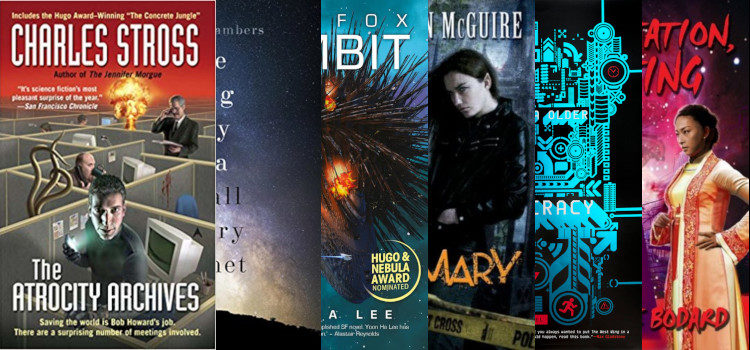
Hugo Awards Extravaganza 2019 – Best Series
Of all the Hugo categories, this is both the strangest, and the hardest to prepare for. Basically it is the best series over 240,000 words (about 500 pages), that hasn’t won this award yet, and had an entry come out in the previous year (no matter how small).
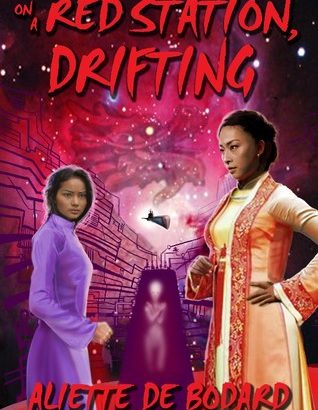
On a Red Station, Drifting by Aliette de Bodard plus The Waiting Stars
A historical review in honour of the Xuya nomination for best series.
Hugo Nominee Review 2013 – Novella 2 (17500-40000 words)
Interesting story about family bonds in a Vietnamese influenced future empire…

Hugo Awards Extravaganza 2019 – Best Dramatic Presentation, Long Form
In theory, this category can include just about any medium (TV series, Game, Street Performance) as long as it is longer than 90 minutes. Disappointingly, it end up as the best movie category. Given my scarcity of going out time, I generally only see films that appeal to my wife (horror), or my kids (superheroes), but this year that covered four of the six, and I watched Annihilation when it dropped on Netflix. On the upside, this means that I only had to watch Sorry to Bother You to vote in the category, on the downside, a lot of these films are a bit fuzzy in my recollection.
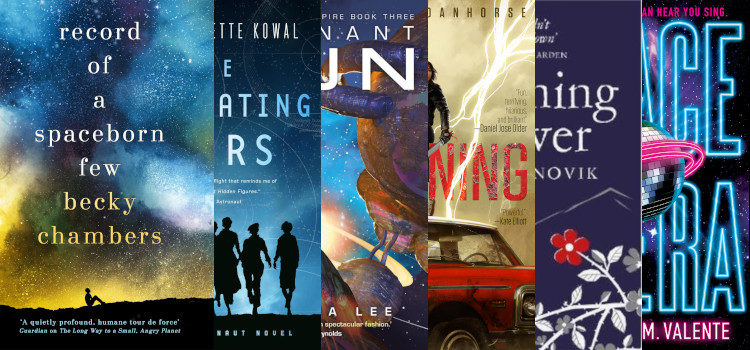
Hugo Awards Extravaganza 2019 – Novel
The marquee category, prima inter pares, what people mean when they refer to “The Hugo Award”, the novel category is open to works greater than 40,000 words (~80 pages plus). It is also the category I dread the most; no matter how bad a short story is, it will be gone in a moment, while even a good story can drag at novel length. This year I’ve read two going in, Trail of Lightning and Revenant Gun.
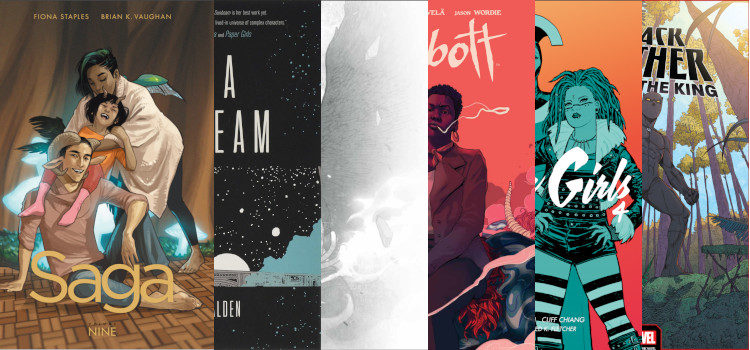
Hugo Awards Extravaganza 2019 -Graphic Story
This is a pretty self explanatory category typically composed of graphic novels and trade paperbacks. The big story of 2019 is how stagnant the selection is; half of the Graphic Story slate has been locked in since 2017, in the form of Saga (six time nominee), Monstress (two time winner), and Paper Girls. Fortunately two of the repeats (Monstress and Saga) were my top picks of last year, so it is hard to begrudge them their perennial status.
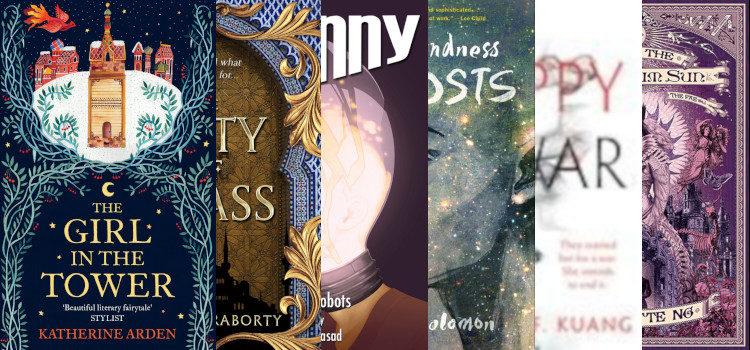
Hugo Awards Extravaganza 2019 – John W. Campbell Award for Best New Writer
The Campbell award is open to the best new writer, and is judged over their output regardless of length or quantity. Usually, the main thing to comment on is that it is not really a Hugo, but the interesting wrinkle of the Campbell award this year is that you can be eligible for it twice.
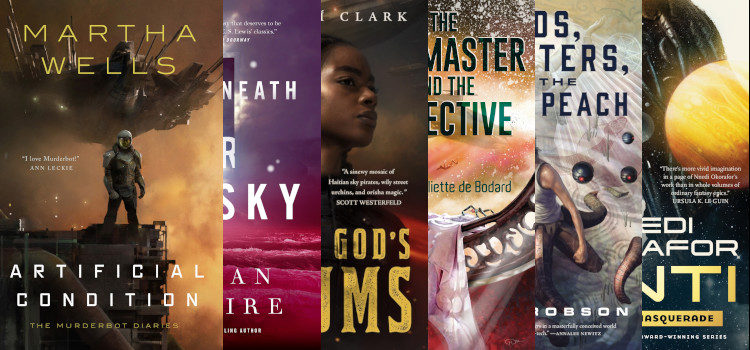
Hugo Awards Extravaganza 2019 – Novella
Works in the Hugo Novella category are almost always short novels (17500-40000 words).I feel like this category has undergone a bit of a renaissance with digital publishing…
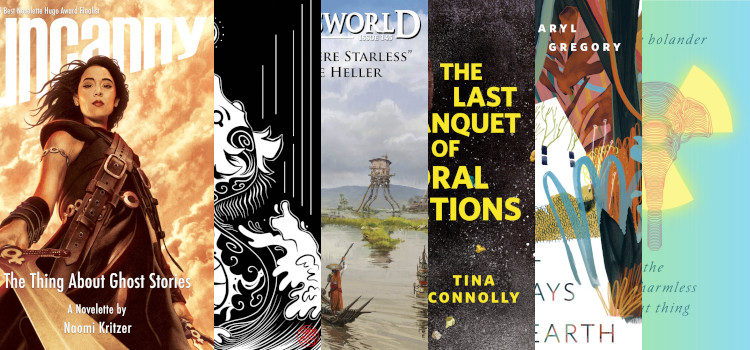
Hugo Awards Extravaganza 2019 – Novelette
Hugo novelettes tend to be long short stories (7500-17500 words). The little bit of extra space gives more flexibility and can lead to greatness (last year’s Wind Will Rove, or two years ago’s Tomato Thief spring to mind), but far to often they fall into the uncanny valley where the length makes them flabby without gaining the depth of a longer work.
